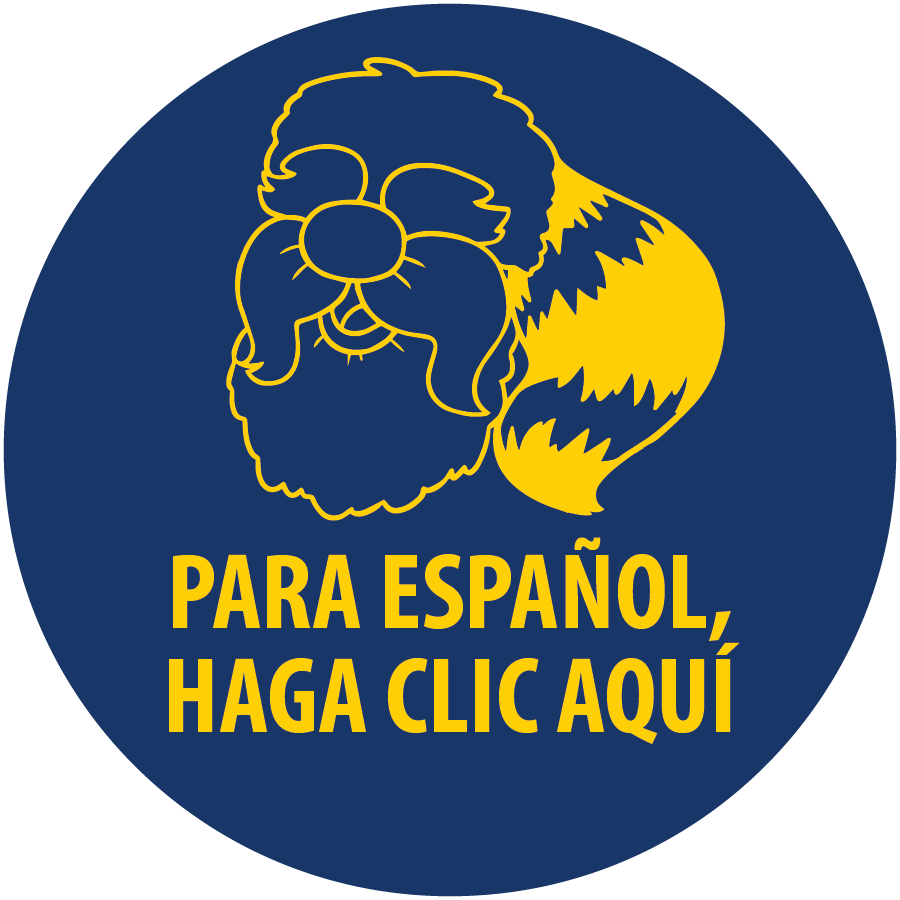 Early Childhood Education
Early Childhood Education
Whether you want to earn a short-term certificate and begin work in a childcare facility or you want to complete an associate or bachelor's degree for a career in teaching, Centralia College has options that work for you.
 Options in Early Childhood Education
Options in Early Childhood Education
- Two-year Degree Programs - The three associate degrees available in Early Childhood Education provide students with the skills and information necessary to compete for jobs in early childhood education or in a school system as a teacher’s aide. Students receive the opportunity to observe early childhood classrooms and practice working with children in the on-campus Children’s Lab School.
- Certificate Programs - The Early Childhood Education Certificate program prepares students to compete for entry-level employment in the child care field. Students explore child development from birth through age eight. Students receive the opportunity to observe early childhood classrooms and practice working with children in the on-campus Children’s Lab School.
- Bachelor's Degree Option - Centralia College offers an applied bachelor's degree in Teacher Education (K-8). You can easily turn a two-year degree into a bachelor's degree at CC!
Looking for Child Care or ECEAP Preschool?
Visit the Resources section for information on college Early Learning Programs, including free ECEAP preschool and the campus child care center (Children's Lab School).
Career Possibillities in Early Childhood Education
Completion of the Associate in Applied Science in Early Childhood Education prepares students to become teachers in child care centers, family day care homes, cooperative and private preschools, ECEAP, or Head Start.
To successfully complete field experience in ECED& 105: Introduction to Early Childhood Education, ECED& 120: Practicum - Nurturing Relationships, and ECED 233: ECE Practicum 2, students will volunteer in a Head Start, school or ECEAP, Child Lab School, or other approved classroom. This requires a Washington State Patrol background check, tuberculosis test, and proof of Measles, Mumps, Rubella (MMR) vaccination.
Students completing field experience in EDUC& 205: Introduction to Education w/field experience will need a Washington State Patrol background check to successfully complete field experience in a K-12 classroom.
Students must earn a 2.0 or better in all EDUC and ECED coursework to apply for the ECE degrees or certificates.
Student learning is central to the college’s mission. All associate of arts, associate of science, and MRP/DTA degrees are designed to provide experiences that lead to the attainment of general education outcomes as embodied in the following student learning competencies:
- Critical Analysis: the student effectively evaluates information and creates solutions through observation, reflection, reasoning, and experience.
- Communication: the student effectively conveys information and ideas by adapting their communication style to different situations and audiences when speaking, writing, and listening to others.
- Global Awareness & Cultural Competency: the student effectively engages with the multi-cultural world by studying the practices and perspectives of varying communities and cultures.
- Information Literacy: the student effectively engages in a reflective process of inquiry to find, evaluate, use, and ethically create content.
Emphasis: Early Childhood Education
Degree: Associate in Applied Science – Transfer
Total Credits: 93-95
| First Year | |
| Fall Quarter |
|
| Winter Quarter |
|
| Spring Quarter |
|
| Second Year | |
| Fall Quarter |
|
| Winter Quarter |
|
| Spring Quarter |
|
Recommended Education Electives: ECED& 134, ECED& 138, or ECED& 139, OREDUC& 136, EDUC& 204, or EDUC& 205
Recommended Natural Science Distribution: Lab Science, Life Science, or Physical Science courses with at least one lab
Recommended Social Science Distribution: History, PNW History, or Western Civilization
Upon successful completion, students will have demonstrated the ability to:
- Demonstrate an understanding of how children differ in their development and approaches to learning and to use this knowledge to provide opportunities that support the physical, social, emotional, and cognitive development of all young children from birth through age eight.
- Demonstrate the ability to use theory, research and foundations of education when planning and implementing Early Child Education programs.
- Plan and implement developmentally appropriate curriculum and teaching practices based on knowledge of individual children, the community and the curriculum goals and content.
- Use individual and group guidance and problem-solving techniques to develop positive and supportive relationships with children and develop personal self -control, self motivation, and positive self-esteem.
- Establish and maintain positive, collaborative relationships with families.
- Articulate a philosophy and rationale for decisions while continually assessing and evaluating the effects of their choices and actions on others.
- Serve as an advocate on behalf of young children and their families, programs for young children and the working environment for early childhood educators.
- Demonstrate an understanding of the early childhood profession and a commitment to professionalism.
- Demonstrate competence in managing human, fiscal, and spatial resources while meeting the health and safety needs of children and adults.
Degree: Associate in Applied Science
Emphasis: Early Childhood Education
Total Credits: 91-96
| First Year | |
| Fall Quarter |
|
| Winter Quarter |
|
| Spring Quarter |
|
| Second Year | |
| Fall Quarter |
|
| Winter Quarter |
|
| Spring Quarter |
|
Recommended Education Electives: ECED& 134, ECED& 138, ECED& 139, EDUC& 136, or EDUC 205
Recommended Distribution Electives: MATH&131, CMST& 220, Natural Science with at least one lab: Physical Science: (Oceanography, Geology, Chemistry), Life Science: (Nutrition, Environmental Science, Biology), Social Science: U.S. History, PNW History
Upon successful completion, students will have demonstrated the ability to:
- Demonstrate an understanding of how children differ in their development and approaches to learning and to use this knowledge to provide opportunities that support the physical, social, emotional, and cognitive development of all young children from birth through age eight.
- Demonstrate the ability to use theory, research and foundations of education when planning and implementing Early Child Education programs.
- Plan and implement developmentally appropriate curriculum and teaching practices based on knowledge of individual children, the community and the curriculum goals and content.
- Use individual and group guidance and problem-solving techniques to develop positive and supportive relationships with children and develop personal self -control, self motivation, and positive self-esteem.
- Establish and maintain positive, collaborative relationships with families.
- Articulate a philosophy and rationale for decisions while continually assessing and evaluating the effects of their choices and actions on others.
- Serve as an advocate on behalf of young children and their families, programs for young children and the working environment for early childhood educators.
- Demonstrate an understanding of the early childhood profession and a commitment to professionalism.
- Demonstrate competence in managing human, fiscal, and spatial resources while meeting the health and safety needs of children and adults.
- Model global awareness and respect for the cultural diversity of children.
- Examine, discuss, evaluate and critique various issues and trends in Early Childhood Education.
- Identify and explain the major historic events and theoretical perspectives of Early Childhood Education.
Degree: Associate in Arts
Emphasis: Early Childhood Education
| First Year | |
| Fall Quarter |
|
| Winter Quarter |
|
| Spring Quarter |
|
| Second Year | |
| Fall Quarter |
|
| Winter Quarter |
|
| Spring Quarter |
|
Upon successful completion, students will have demonstrated the ability to:
- Demonstrate an understanding of how children differ in their development and approaches to learning and to use this knowledge to provide opportunities that support the physical, social, emotional, and cognitive development of all young children from birth through age eight.
- Demonstrate the ability to use theory, research and foundations of education when planning and implementing Early Child Education programs.
- Plan and implement developmentally appropriate curriculum and teaching practices based on knowledge of individual children, the community and the curriculum goals and content.
- Use individual and group guidance and problem-solving techniques to develop positive and supportive relationships with children and develop personal self -control, self motivation, and positive self-esteem.
- Establish and maintain positive, collaborative relationships with families.
- Articulate a philosophy and rationale for decisions while continually assessing and evaluating the effects of their choices and actions on others.
- Serve as an advocate on behalf of young children and their families, programs for young children and the working environment for early childhood educators.
- Demonstrate an understanding of the early childhood profession and a commitment to professionalism.
- Demonstrate competence in managing human, fiscal, and spatial resources while meeting the health and safety needs of children and adults.
- Model global awareness and respect for the cultural diversity of children.
- Examine, discuss, evaluate, and critique various issues and trends in Early Childhood Education.
- Identify and explain the major historic events and theoretical perspectives of Early Childhood Education.
Emphasis: Early Childhood Education
Degree: Initial State Certificate-ECE
Total Credits: 12
Courses
- ECED& 105 Introduction to Early Childhood Education - 5 credits
- ECED& 107 Health/Safety/Nutrition - 5 credits
- ECED& 120 Practicum-Nurturing Relationships - 2 credits
Emphasis: Early Childhood Education
Degree: Short State Certificate of Specialization-ECE
Total Credits: 20
Required Courses
- ECED& 105 Introduction to Early Childhood Education - 5 credits
- ECED& 107 Health/Safety/Nutrition - 5 credits
- ECED& 120 Practicum-Nurturing Relationships - 2 credits
| Additional Courses - Choose Courses in One of the Groupings Below | |
| Early Childhood Education (General) |
|
| Infant and Toddler Care |
|
| School-Age Care |
|
| Family Child Care |
|
| Administration |
|
| Home Visitor/Family Engagement |
|
Upon successful completion, students will have demonstrated the ability to:
- Demonstrate an understanding of how children differ in their development and approaches to learning and to use this knowledge to provide opportunities that support the physical, social, emotional, and cognitive development of all young children from birth through age eight.
- Demonstrate the ability to use theory, research and foundations of education when planning and implementing Early Child Education programs.
- Plan and implement developmentally appropriate curriculum and teaching practices based on knowledge of individual children, the community and the curriculum goals and content.
- Use individual and group guidance and problem-solving techniques to develop positive and supportive relationships with children and develop personal self -control, self motivation and positive self-esteem.
- Establish and maintain positive, collaborative relationships with families.
- Articulate a philosophy and rationale for decisions while continually assessing and evaluating the effects of their choices and actions on others.
- Serve as an advocate on behalf of young children and their families, programs for young children and the working environment for early childhood educators.
- Demonstrate an understanding of the early childhood profession and a commitment to professionalism.
- Demonstrate competence in managing human, fiscal, and spatial resources while meeting the health and safety needs of children and adults.
- Model global awareness and respect for the cultural diversity of children.
- Examine, discuss, evaluate, and critique various issues and trends in Early Childhood Education.
- Identify and explain the major historic events and theoretical perspectives of Early Childhood Education.
Emphasis: Early Childhood Education
Degree: State Early Childhood Education Certificate
Total Credits: 54
| Course Plan | |
| Fall Quarter |
|
| Winter Quarter |
|
| Spring Quarter |
|
| Summer or Fall Quarter |
|
Contact
Career & Technical EducationTech (TEC) Building, Room 114
360-623-8963
cte@centralia.edu
